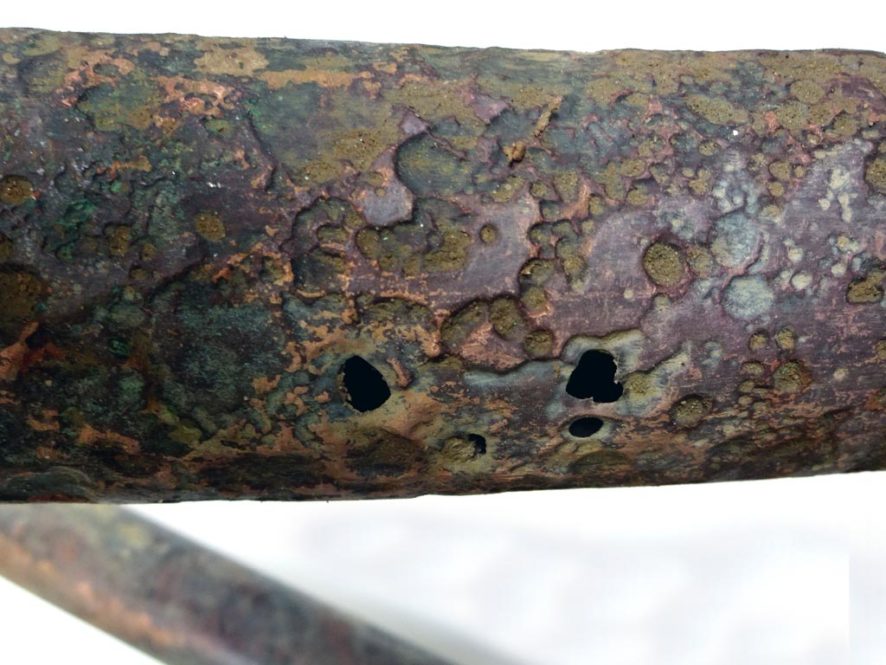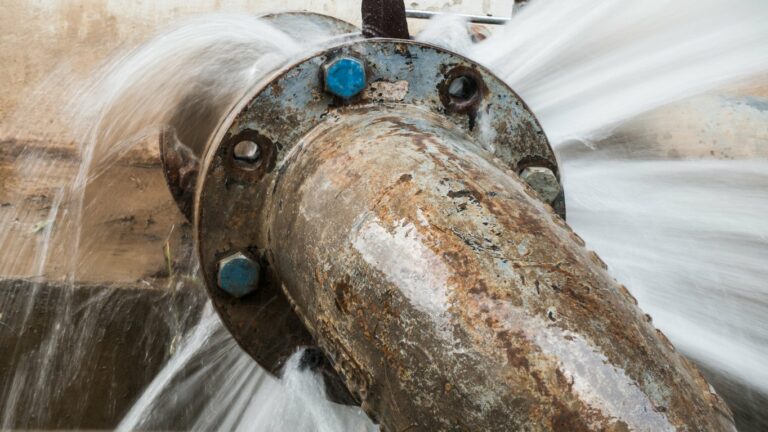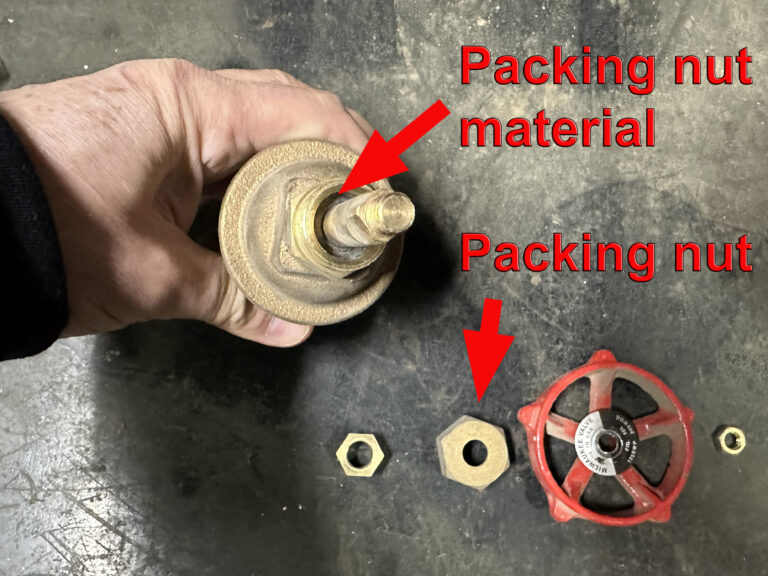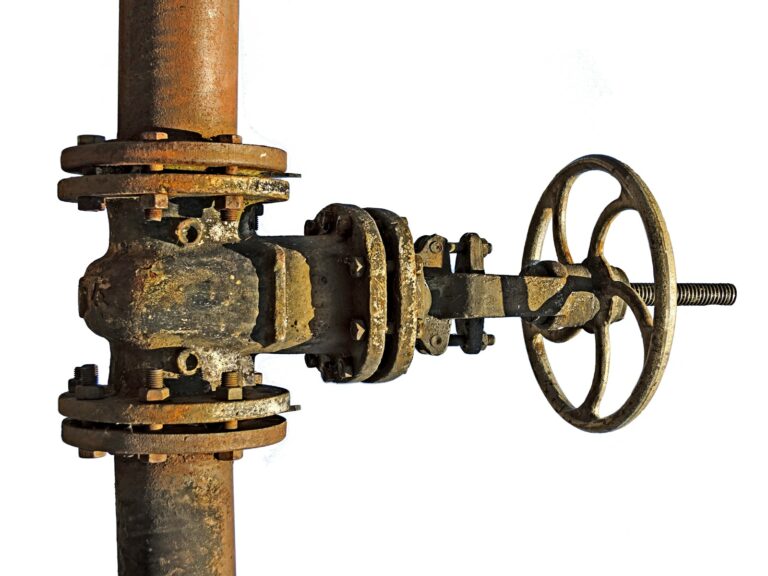When copper pipe corrosion occurs it can catch you by surprise, since many people believe copper pipe doesn’t corrode. However, copper is not corrosion-proof; it is just less likely to corrode than iron-based pipes such as galvanized pipe. One of the main reasons copper is such a popular plumbing material is because copper pipe corrosion only occurs under a few unique circumstances.
Probably the main reason copper is a preferred material for potable water systems is that it poses no health risks, unlike lead water lines. Additionally, because it is a non-ferrous metal, copper pipe corrosion does not typically occur.
Copper pipe corrosion from the chemistry of the water supply
When copper pipe corrosion does affect copper pipe, it is often because of water chemistry. Since buildings across the country have over 5 million feet of copper pipe installed, those pipes are exposed to a wide range of water chemistries. A pipe that has lasted for decades in a locale with less aggressive water may only last a few years in a locale with really aggressive water chemistry.
What is considered “aggressive water” that would cause copper pipe corrosion?
So, what exactly is ‘aggressive’ water? It is water that contains sulfur, ammonia, oxidizing acids, or heavy metal salts, singly or in combination. This may be frequently more common in water supplies using well water as the supply source.
The chemical reaction between water containing those compounds and the copper pipes results in corrosion. Aggressive water in the soil can also corrode pipes – this time from the outside into the pipe. This can occur when copper is in constant contact with contaminated groundwater.
The telltale signs of copper pipe corrosion and water leaks inside your building
The amount of dissolved oxygen and the ambient temperature are also factors since they increase the rate of corrosion. If the corrosion occurs in one or more specific areas of the pipe instead, you are more likely to experience pinhole leaks.
Your first indication of that might show up in an unexpectedly large water bill. You may also eventually notice a damp patch of flooring or mold growing on your wall or ceiling. Of course, by the time you notice them you have a much larger problem going on ‘behind the scenes’!
Copper pipe corrosion from ground conditions
Buried copper water lines can also corrode due to ground conditions, such as highly acidic or alkaline ground. One may think that all types of ground are relatively the same, but they frequently are not. One example of an extreme ground condition is when ash is encountered.
Ash is the residual product when items, such as garbage, is burned at an incinerator plant. The resulting ash is extremely acidic. Unfortunately, ash has been used as ground fill in a number of areas.
There are also instances where ground conditions have been fouled by commercial activities over a period of many years, perhaps due to a lack of regulation or enforcement.
How do you protect copper from ash buried underground?
When ash surrounds a buried copper water pipe which emits moisture, copper pipe corrosion is the inevitable result. Buried copper water lines in contact with ash may only last two or three years. There are two accepted remedies to protect the copper.
- Remove the ash, and backfill around the copper with a neutral material such as sand.
- Install the copper through a plastic transit, such as PVC tubing. Plastic will not be affected by an acidic condition.
If protected properly a buried copper water line will last for many decades, as opposed to only a couple of years.
Other causes of copper corrosion
There are other causes of copper pipe corrosion besides aggressive water, or ground conditions: galvanic corrosion from exposure to a dissimilar metal and stray electrical currents may also be at fault. It takes an experienced plumber to recognize the causes and cure for corrosion.
How copper pipe corrosion can affect you
If the corrosion occurs fairly uniformly throughout the pipe, you will probably experience water with elevated copper levels coming out of your plumbing taps. This can result in water with an unpleasant, metallic taste and potentially toxic levels of copper. You should not drink water that has more than 1.0 mg/L of copper.
High copper content in your potable water has definite down-side ramifications
Copper pipe corrosion can cause dissolved copper in your water. This can result in a blue tinge to your freshly laundered whites or blue/green stains around your sinks or other plumbing fixtures. Running water into a clean white container can help you see the blue tint if it is present.
What to do when your copper pipe fails
Prompt attention to copper pipe corrosion is particularly important when it comes to water mains. A defective water line can cause property damage, increase your water bill, and even pose a danger to the general public.
Repairing water mains properly requires a great deal of experience and expertise. Fortunately, we have that level of professionalism. Contact Balkan Sewer And Water Main Service. if you suspect that your pipes are suffering from any form of corrosion. After all, you wouldn’t want to ignore potential problems until this happens!






